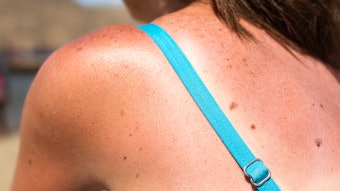An Australian scientist who developed a vaccine for cervical cancer is set to outline a breakthrough which could pave the way for a skin cancer vaccine.
Professor Ian Frazer told The Sunday Telegraph that tests of the vaccine on animals had proven successful and that human trials could begin as soon as next year. "If we can get encouraging results, we will try and push it on as fast as we can," he told the paper.
Frazer also said a skin cancer vaccine could be available in five to 10 years. It would be used on children aged between 10 and 12 to prevent them from developing skin cancer, a disease which causes some 1,600 deaths in Australia each year. The new vaccine would target papillomavirus, a common infection which can turn abnormal cells into cancer.
Frazer, a University of Queensland researcher who developed the cervical cancer vaccine Gardasil, said it was not yet known how many skin cancers were caused by the virus. "My entire career has been focused on understanding the interaction between papillomavirus and the cancers," he said. "We know it causes at least 5% of all cancers globally."
Close to 400,000 people are diagnosed with skin cancer in the sunburnt country each year, and Frazer said that even if the vaccine worked on humans, people should not stop protecting themselves from the sun. "A vaccine is not a replacement for prevention," he noted.
David Currow, the head of Cancer Australia, a government body which assists with research and education, warned that the vaccine may not prevent all skin cancers. "As we've seen with cervical cancer, although it may deal with 70% of cancers of the cervix, the vaccine doesn't deal with the other 30%," he said. "And so it is with a vaccine related to skin cancer. The message is still that one of the most powerful things that we can do is reduce the risk by reducing our exposure to sunlight."
Agence France-Presse, November 16, 2008










